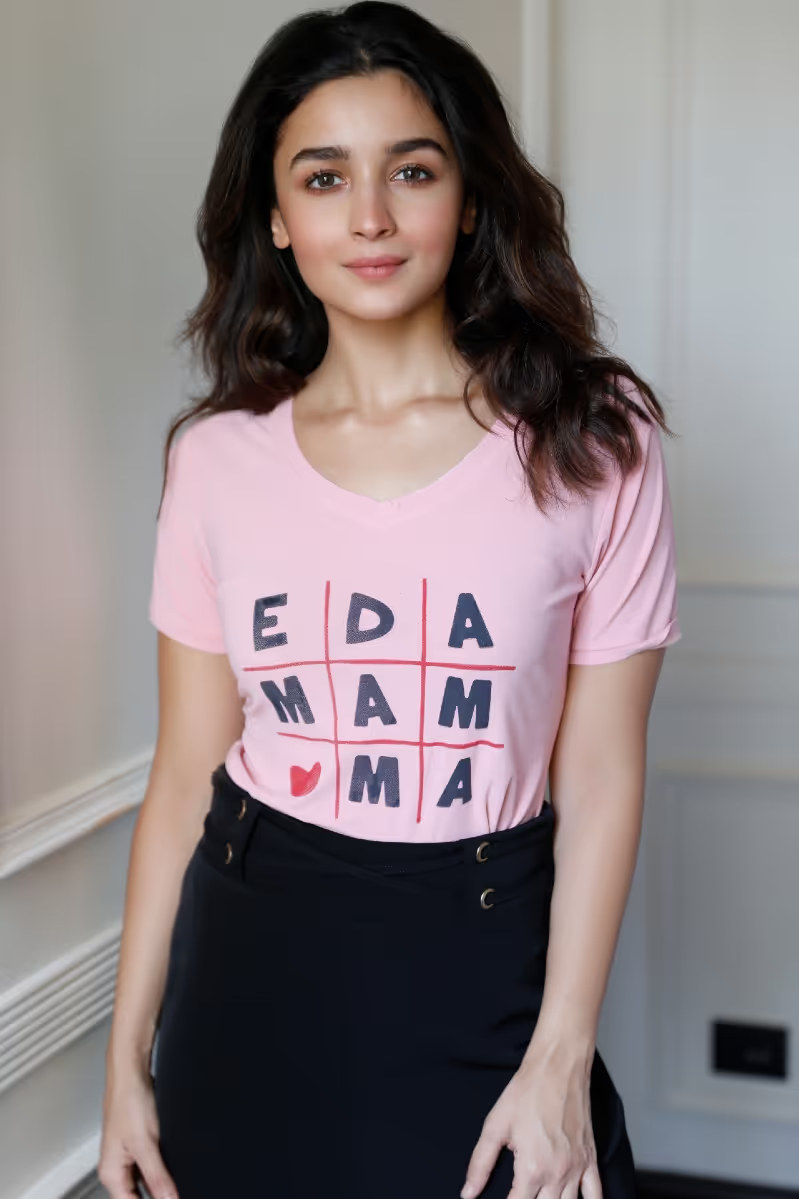Alia Bhatt on starting her entrepreneurial journey with sustainable kidswear brand Ed-a-Mamma
In a conversation with YourStory, actor, investor, philanthropist, and now a startup founder, Alia Bhatt speaks about starting a conscious clothing line for children.
Alia Bhat has been in the public eye as an actor for close to 10 years now. But apart from this, she is also an investor in startups like Stylecracker and also recently invested in fashion retailer Nykaa. She has now turned an entrepreneur by launching , a sustainable children’s wear brand.
The brand had a stealth launch in October on ecommerce platform FirstCry. Speaking to YourStory on why she chose to start up, Alia said,
“I wanted to start my own label. When you become semi-successful, you start looking back to see if you can start something of your own. I was interested in clothes and fashion, and when I looked deeper, I realised there was no dearth of clothes or fashion labels for people in the age group of 25 to 45 years. The competition, in fact, is high.”
“I wanted to focus on bridging a need gap. I thought we may have to move away from fashion and focus on a gap that lies in another product. There was a need for a world-class children’s clothing brand, which is Made in India,” said Alia.
A little dog called Ed and his mamma
It all started when Alia was working on a story series of a little dog called Ed and his mamma, a little girl. According to Alia, the idea was to create this universe where this little girl and her dog go out on adventures and save the planet from ecological harm. “Through these stories, I wanted to nurture a love of nature in children,” she said.
It was from there the team came up with the idea of Ed-a-mamma. The brand’s first offering is a conscious clothing line, which will be turned into stories and later made into a video series.
“Children are extremely caring, and if you created a planeteer at a young age, you have saved the planet for years to come,” said Alia, who has also launched an ecological initiative called CoExist to raise awareness about the welfare of street animals.
Watch the full conversation here:
The clothing range has been made out of complete natural fibres, and the buttons too are not made of plastic. The team reuses, recycles, and reuses. The leftover fabric is made into hair ties and potlis.
“One of the first things I made sure was that Ed-a-mamma as a brand wouldn’t be about me, but would have its own story and stand on its own feet. The fact that I am the founder should not be the focus,” said Alia.

Actor Alia Bhatt has been an investor in startups such as Nykaa
A ‘Made in India’ product
Every garment comes with a seed ball and it is an activity for the child and parent to do together so that there is another plant in the world. The brand also has gender neutral t-shirts made of organic cotton. The products are priced in the range of Rs 349 to Rs 1,499, the organic t-shirt range starts at Rs 799. The idea is to make ethical clothing affordable.
The focus was to create a homegrown brand out of India. The team therefore focussed on setting up the vendor, distribution, and manufacturing out of India. It worked with specialty factories from Mumbai, Tripura, and Kolkata, to name a few.
“I was also fortunate to work with a business head who has been in the business for 22 years.”
Starting up during the pandemic
Like most businesses, Ed-a-mamma too was hit by the pandemic. The team was looking for a big launch in April 2020.
“For someone like me who knows nothing about business, it meant factories shutting down and complete confusion about the distribution, etc. We had to stall certain collections and were not sure when we were going to sell,” said Alia.
This also meant that for close to five months the team was sitting with inventory. It led the team to take the soft launch route. “The inventory was lying around, and it would break my heart,” she said.
However, with no marketing or promotion, the team was able to clear out 70 percent of the stocks in just six weeks.
“I am just a storyteller, and with Ed-a-mamma, I’m trying to do just that. In these eight months, I have had two big takeaways - the love that one should have for people in their lives - family and loved ones. When you are most vulnerable, the people you turn back to are your family and loved ones.”
“The new phase of my work life will be different in taking that time off and making time for them. I have realised we have to be kind to each other and to our planet. I’ve seen a lot of hate, and a little kindness can take you a long way,” said Alia.
Edited by Megha Reddy








